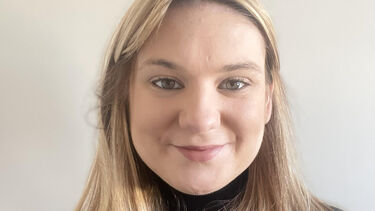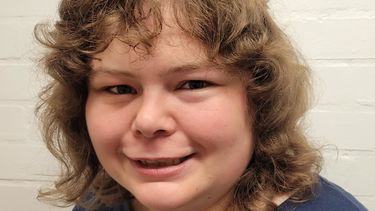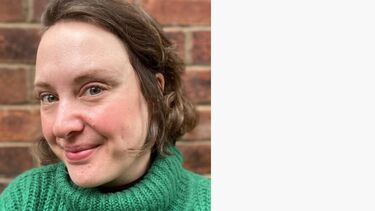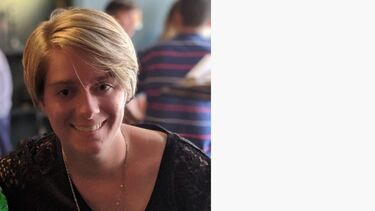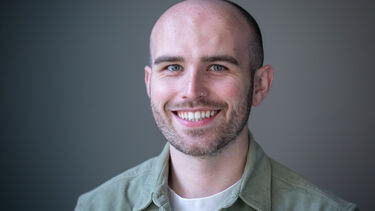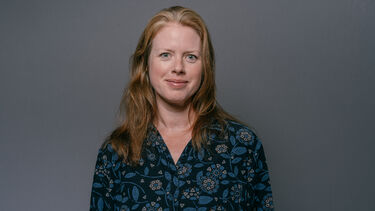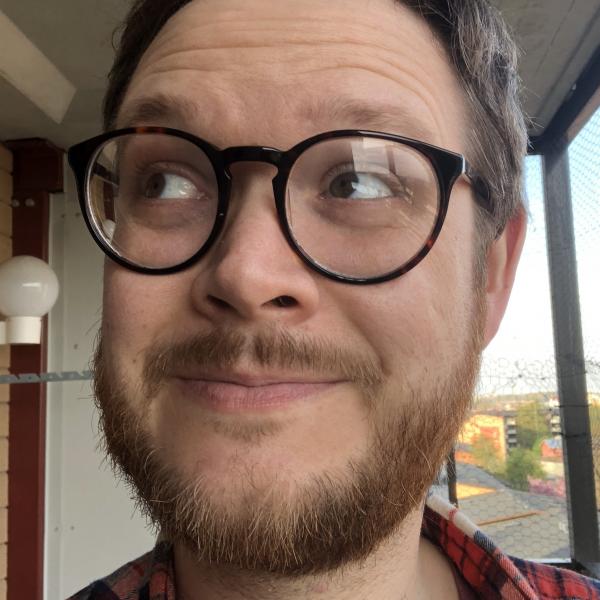Meet our PRN Committee Members
Our Participatory Research Network is co-led by a vibrant committee of 16 academics, early and mid-career researchers, postgraduate colleagues, and professional services staff from 12 different departments.
The Participatory Research Network at the University of ĺŇ…ę ”∆Ķ (PRN@TUoS) is an established cross-faculty network that supports participatory research and researchers.
Dr Kirsty Liddiard
PRN co-lead
About
Kirsty Liddiard is a feminist disability studies scholar and disabled researcher whose co-produced research centres on lived experience, emotion and embodiment as core axes through which to understand the everyday lives of disabled people and their families. She is currently a Senior Research Fellow in the School of Education and iHuman at the University of ĺŇ…ę ”∆Ķ. Kirsty is a Co-Director of PRN alongside Lauren White. Kirsty‚Äôs current project, , funded by a Wellcome Discovery Award, explores the experiences of people who have had their lives saved or sustained by ventilatory medical technologies.
What connects you to the PRN?
Participatory research and co-production have always been the primary ways I connect to knowledge production as a researcher. Collaboration sits comfortably at the core of my work, and I love working with others.
PRN was established back in 2022 as part of a former project - my desire was to co-create a space where people interested in participatory research could come together to share the unique experiences that can come up in the processes, practices and politics of working with others.
I really enjoy working with the committee - with their care and commitment, PRN has become a thriving network.
Dr Lauren White
PRN co-lead
About
Lauren White is a Lecturer in Research Methods in the ĺŇ…ę ”∆Ķ Methods Institute and School of Education. Her research interests centre around the everyday experiences of health, illness and disability, utilising creative and participatory methodologies to explore these areas with the communities involved. Lauren is currently leading a work package on the Wellcome Anti-Ableist Research Cultures (WAARC) funded project, where inclusive research methods and accessible events are being developed in collaboration with disabled people‚Äôs organisations. Lauren recently led the award winning, ‚ÄėTowards Joyful Learning‚Äô research project which sought to centre joy in collaboration with students across the University. Creativity, joy and collaboration are at the heart of much of her work.
What connects you to the PRN?
I feel very much at home in PRN as for me, research and its magic only happens when working together, co-creating and establishing human connection. Across all of my research, learning and teaching endeavours are principles of participation, collaboration and celebrating the expertise and experiences of everyone in the room. I’ve been involved with PRN since it began in 2022, co-leading and leading on the projects on PGR experiences of doing participatory research with Kirsty and Ankita. In 2024, I became co-director with Kirsty and work alongside the broader committee which is a wonderful and collaborative team!
Dr Bryony Vince-Myers
PRN Research Associate | PGR co-lead | Sustainability and funding co-lead
About
Bryony is a Research Associate in the Participatory Research Network at the University of ĺŇ…ę ”∆Ķ (PRN@TUoS). She is also Project Coordinator on the Co-Pro Futures Inquiry - a two-year project (2024-2026) funded by Research England which aims to propose actionable measures to overcome systemic barriers to participatory and co-produced research within universities and the broader higher education sector. Bryony is also Editor-at-large at and co-editor of the Bloomsbury book series Global Dialogues: Non-Eurocentric Visions of the Global.
Bryony's wider research explores local and everyday approaches to peacebuilding with a particular focus on decolonial and participatory methodologies. She completed her PhD in International Relations at the University of ĺŇ…ę ”∆Ķ in February 2025. Bryony's research agenda broadly seeks to decenter colonial and Eurocentric understandings of and approaches to peacebuilding and international relations, and is committed to improving the conditions for doing co-produced and participatory research in academia.
What connects you to the PRN?
Within the PRN, I lead key initiatives to improve support and training for postgraduate and early-career researchers interested in or doing participatory research. This includes leading our PRN PGR/ECR Creative Methods Workshop series and our PGR mentoring scheme, which launched in 2024/2025. It’s wonderful to be a part of a network that is actively improving the way we do research, centred around a commitment to creating knowledge with and for, not on, those affected.
Dr Sophie Phillips
PRN Research Associate | Events Lead
About
Sophie is a Research Associate with iHuman at the University of ĺŇ…ę ”∆Ķ. She works on the Wellcome Trust Anti Ableist Research Culture Project, where they are employing inclusive methods to investigate how the university can become anti-ableist. Sophie is specifically exploring how we can promote more inclusive disability research at the University of ĺŇ…ę ”∆Ķ. This is through an Open Call to all researchers in TUOS seeking to support research projects that put into practice inclusive methods with disabled people and their representative organisations. They are also cripping the university research concordat to ensure accessibility.
What connects you to the PRN?
My interest in ensuring research is driven by and for community partners primarily connects me to the PRN. In addition, I am particularly interested in ethics within vulnerable populations and participatory research.
I am currently the events lead in the PRN Committee, continuing my work in leading and organising many previous successful PRN events.
Dr Ankita Mishra
PRN Committee Member | PGR co-lead
About
Ankita is the Research Associate for Health Priorities in Disability Matters - a major six year pan-national programme of disability, health and science research that spans across UK, India, Singapore, Australia and Canada, funded by a Wellcome Trust Discretionary Award (2023 - 2029)- based at iHuman, Social Research Institute, ĺŇ…ę ”∆Ķ.
Ankita uses participatory action research, creative and/or arts-based research methods that amplify multiple ways of knowing and being in marginalised communities affected by intersectional oppression. She yearns to disrupt dominant and extractivist ways of research, generating and sharing knowledge by challenging and rethinking existing systems of power that perpetuate inequities to advance gender, racial and disability justice. She is driven by community collaboration, partnerships and outreach by working with and being embedded in communities, grassroots activism and advocacy. Ankita is passionate about de-scholarising the academy by transforming academic-community collaborations embodying the principle of ‚ÄėNothing about us without us is for us‚Äô.
What connects you to the PRN?
My interest in creative co-production approaches to knowledge generation and communication alongside my aspiration for genuine collaboration with communities brought me to PRN. Within the PRN, I have been leading the work on amplifying postgraduate researchers' (PGRs) experiences of participatory research within the university, advocating for inclusive research cultures and environments through multiple research explorations with PGRs and designing the specialist PGR Mentoring programme of PRN. I also developed the creative research methods training series to support PGRs and early career researchers interested in participatory research.
I collaborated with Access Folk to organise a training workshop on Intellectual Property Rights and Participatory Research with colleagues from research and professional services across the university to untangle how intellectual property rights and data protection legislation affect research design and partnerships.
I am currently the PGR Co-Lead in the PRN Committee continuing my advocacy of PGR experiences of participatory research in university research cultures.
Dr Cassie Kill
PRN Committee Member | Methods and training co-lead
About
Cassie is an experienced qualitative and post-qualitative researcher, working across education, sociology and cultural studies. Her research focuses on critically engaging with participation and EDI work in cultural and educational institutions. She uses and writes about creative and inclusive methods, artistic research and co-production. Before entering academia, Cassie worked in participatory arts for many years, and continues to collaborate with organisations in the cultural sector.
What connects you to the PRN?
I am passionate about issues of power and voice, so participatory methodologies have always been central to my work as a researcher. I have a particular passion for engaging critically with the affordances and limitations of participatory methods, as I believe that ongoing reflection on our research relations is central to maximising their ethical potential.
As Methods and Training Co-lead for the PRN, I am keen to support all members to have opportunities to learn and expand their knowledge and practice of what participatory research is and could become.
Christina Elizabeth Stimson
PRN Committee Member | PGR Mentor
About
Christina is a final-year PhD Researcher funded by The Wellcome Trust (part of the ). I am based at the School of Computer Science, although my project is one of social science: co-designing with children with brittle bones and their families an inclusive Participatory Design methodology for use in future robotic and assistive technology design. The public engagement aspect of my thesis uses interactive fiction as a tool to explore possible technology futures and shared cultural imaginations.
Christina‚Äôs experience in English Literature (BA Hons, ĺŇ…ę ”∆Ķ Hallam University), Creative Writing (MA, ĺŇ…ę ”∆Ķ) and Intercultural Communication (MA, ĺŇ…ę ”∆Ķ) informs her work.
Her wider research interests include critical posthumanism, feminist STS and HRI, queer theory, narratology, and game studies.
What connects you to the PRN?
As well as being a PRN Committee member, Christina acts as a mentor in our PGR Mentoring Scheme.
Dr Danica Darley
PRN Committee Member | Methods and training co-lead
About
Danica is a Research Associate at the University of ĺŇ…ę ”∆Ķ exploring how pre-birth assessments for women who use substances in England and Wales are experienced by women and social workers. Dani‚Äôs PhD research examined the experiences of care-experienced young people of child criminal exploitation (CCE) and was co-produced with three young people who had been in the care of the local authority and had experienced CCE.
Prior to coming into academia in 2017 Dani worked with children in care and those on the fringes of the criminal justice system in Scotland and England for 15 years. She is also a lived experience criminologist having served a custodial sentence, experiencing first hand the harms of the criminal justice system.
Her research interests include care-experience, child exploitation, women in conflict with the law, relational practice, professional boundaries, lived experience criminology and co-production.
What connects you to the PRN?
I am connected to the Participatory Research Network (PRN) at the University of ĺŇ…ę ”∆Ķ through my role as co-lead of the Methods and Training aspect of the committee‚Äôs work. As part of this vibrant cross-faculty network, I help create spaces where participatory researchers can connect, learn, and celebrate each other's work. My contributions focus on developing inclusive methods and training opportunities that reflect PRN‚Äôs commitment to equity, diversity, and inclusion.
I draw on my own participatory research experience‚ÄĒmy PhD was co-produced with three care-experienced young people who had been affected by child criminal exploitation (CCE)‚ÄĒto support others navigating similar co-production processes.
Through PRN, I aim to reshape university structures to better support participatory research and ensure researchers at all career stages feel valued and included. I‚Äôm proud to be part of a network that nurtures collaboration and helps embed participatory approaches within our research culture at ĺŇ…ę ”∆Ķ.
Dr Louis Stokes
PRN Committee Member | PGR mentor
About
Louis is a postdoctoral researcher in the Neuroscience Institute at the University of ĺŇ…ę ”∆Ķ. Louis is a committee member of the Participatory Research Network (PRN) and has a keen interest in meaningfully co-producing research and interventions in health research about long-term neurological conditions.
Louis currently works on a research project exploring how to improve the implementation of mental capacity legislation in care homes for older adults living with dementia.
Louis completed his PhD at the University of ĺŇ…ę ”∆Ķ, which explored the cognitive and behavioural phenotypes of two ultra-rare genetic conditions.
Outside of academia, Louis has extensive experience support life sciences companies, charities and the NHS to co-produce a range of health research projects and interventions - ranging from patient support programmes, clinical trials and health information content.
What connects you to the PRN?
Within the PRN, I mentor postgraduate research students to embed participatory research methods within their own work. I also contribute to training and development initiatives and support knowledge exchange with groups hoping to undertake participatory research in the future.
Dr Pamela Richardson
PRN Committee Member | Methods and training co-lead
About
Pamela holds a Marie Curie Research Fellowship at the School of Geography and Planning. She is a Fellow of the Institute for Sustainable Food and the Institute for Global Sustainable Development. Her research interests span agri-food studies, feminist geography, diverse economies, sustainabilities, collaborative methodologies, critical development studies and feminist political ecology. She has a long-term interest in the relations between community, socio-ecological imagination and transformative processes. Her current Participatory Action Research focuses on community-building practices and sustainable food systems in Zimbabwe. She leads various initiatives, including Co-Creating Change, Make it Grow and Video-Co-Lab and is a trainer and facilitator of participatory audio-video production. She has been working with collaborative and creative methods for more than 20 years.
Currently, Pamela focuses on supporting organisational and community capacity-building and has particular expertise in co-design processes, decolonising methodologies and audio-visual production.
What connects you to the PRN?
Pamela has been a PRN Committee Member since 2022 and in 2025, took on a co-leadership role for PRN's Methods and Training.
Dr Steph Ejegi-Memeh
PRN Committee Member
About
Steph’s current research centres around health inequalities related to underrepresented groups, gender and ethnicity. She currently co-leads the NIHR funded CLARITY+ project which explores community-led evaluation from the perspective of racially minoritised communities. She works closely with healthcare professionals and community organisations.
Steph has worked with several non-governmental organisations and universities internationally. She has extensive experience as a community volunteer in Spain and the UK. Initiatives that Steph has supported in a volunteering capacity include enabling access to health care services for people living with HIV who are newly diagnosed, promoting safe sex, and promoting mental health in the Black community. She is a Research Consultant with Voluntary Action ĺŇ…ę ”∆Ķ and an Associate Researcher at the New Economics Foundation.
Dr Esbjörn Wettermark
PRN Committee Member | Community engagement co-lead
Dr Janet Harris
PRN Committee Member
Dr Josephine Reynolds
PRN Committee Member | Community engagement co-lead
Dr PJ Annand
PRN Committee Member | Sustainability and funding co-lead

iHuman
How we understand being ‚Äėhuman‚Äô differs between disciplines and has changed radically over time. We are living in an age marked by rapid growth in knowledge about the human body and brain, and new technologies with the potential to change them.


